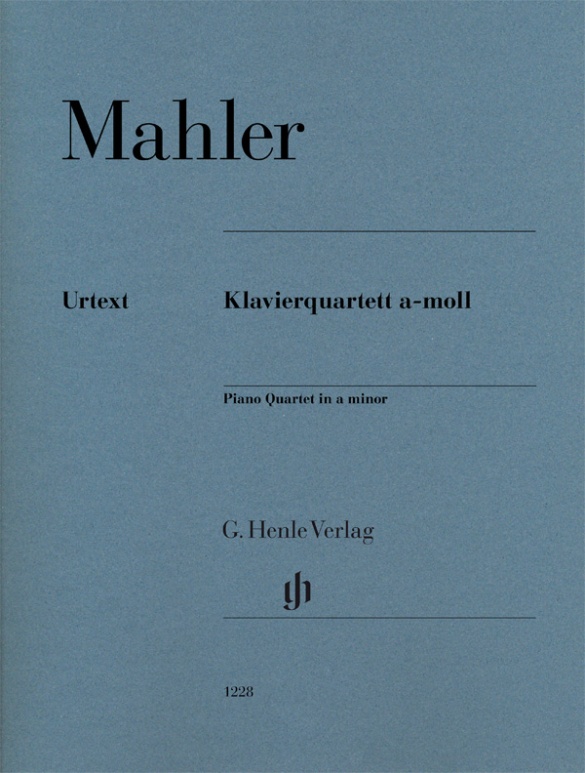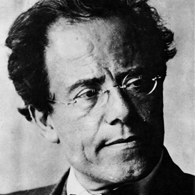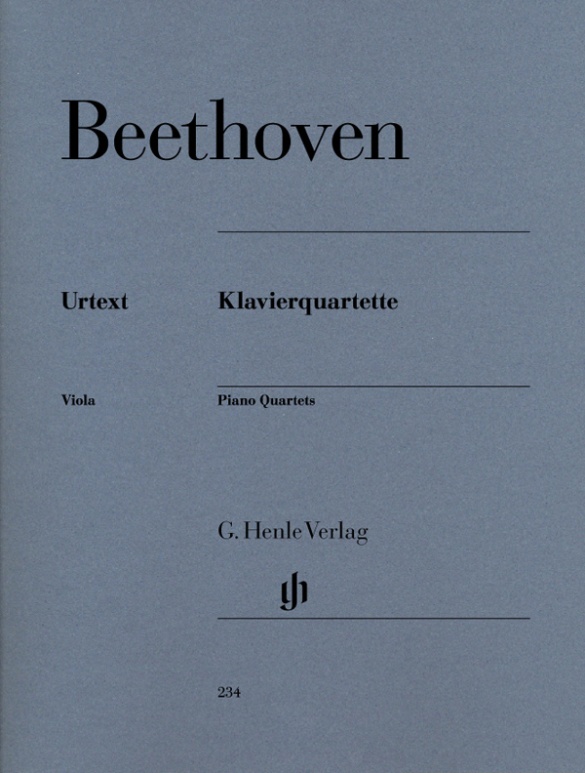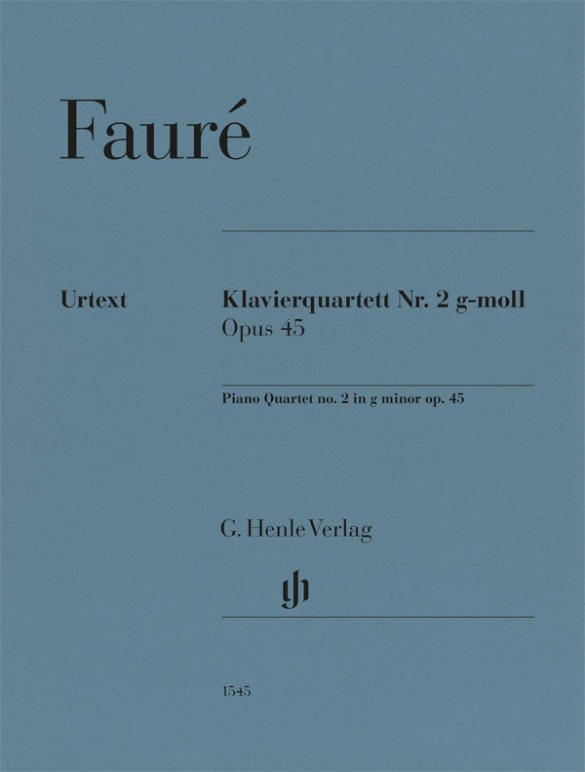

Gustav Mahler
Piano Quartet a minor
The name Mahler is so closely associated with the symphony and Lied genres that it is little known how intensively he applied himself to chamber music during his studies. Of his numerous attempts in this field only one piano quartet composed between 1876 and 1878 has survived – and of this merely the first movement in its entirety. The latter was only rediscovered in the 1960s and first published in 1973. Even if Brahms is unmistakably his model, the quartet movement contains enough individual and also unconventional elements – such as the almost symphonic treatment of the piano – for us to incorporate it into our Urtext ranks. In addition, we have included an appendix “for study purposes” with Mahler’s fragmentary sketch for a further movement, a scherzo for the same instrumentation.
Content/Details
About the Composer

Gustav Mahler
The oeuvre of this important Austrian composer and conductor is concentrated upon the genres of the art song and symphony as well as their interplay (vocal movements in Symphonies No. 2 through No. 4) and synthesis (Das Lied von der Erde). His manner of composition is marked by a fragmentation based on the disassociation of patterns and idioms. Through movement titles and (later withdrawn) programs, as well as his statements, his symphonies are regarded as ideological music.
| 1860 | Born in Kaliště (Bohemia) on July 7. Relocation to Jihlava (Iglau) that same year. |
| 1875–78 | Musical studies in Vienna. |
| 1878–80 | Cantata, “Das klagende Lied” (“The Song of Lamentation”). |
| 1880–90 | Songs with piano. |
| 1880–91 | Various conductorships in Bad Hall, Laibach (Ljubljana), Olmütz (Olomouc), Kassel, Prague, Leipzig, Budapest. |
| 1884/85 | ”Lieder eines fahrenden Gesellen“ (Songs of a Wayfarer), orchestrated in 1891–96. |
| 1885–88 | Symphony No. 1 with an instrumental adaptation of the second Wayfarer song. |
| 1888–94 | Symphony No. 2 (“Resurrection Symphony”). |
| 1891 | Chief conductor at the Stadttheater in Hamburg. |
| 1892–1901 | Orchestral songs, “Des Knaben Wunderhorn” (The Boy’s Magic Horn). |
| 1895–96 | Symphony No. 3 in D minor, arranged as a large-scale entelechy. |
| 1899–1901 | Symphony No. 4 in G major, with humorous elements. |
| 1897–1907 | Director of the Vienna Court Opera. |
| 1901/1902 | Rückert-Lieder with orchestral accompaniment. |
| 1901–02 | Symphony No. 5 in C-sharp minor, including the famous Adagietto. |
| 1901–04 | Kindertotenlieder (Rückert) with orchestra. |
| from 1903 | Collaboration with Alfred Roller. |
| 1903–10 | Sixth to Tenth (unfinished) Symphonies. |
| 1907–10 | Engagement at the Metropolitan Opera, New York. |
| 1908/09 | “Das Lied von der Erde” (“The Song of the Earth”), a symphony of songs. |
| 1911 | Death in Vienna on May 18. |
About the Authors

Klaus Schilde (Fingering Piano)
Prof. Klaus Schilde, born in 1926, spent his childhood in Dresden. There he was greatly influenced by Walter Engel, who taught him the piano (Kodaly method), composition and violin. From 1946–1948 he studied at the music conservatory in Leipzig with Hugo Steurer. After moving to the west in 1952 he studied with Walter Gieseking and Edwin Fischer, as well as with Marguerite Long, Lucette Descaves and Nadia Boulanger in Paris.
Schilde won numerous prizes. From 1947 onwards he gave concerts as a soloist and chamber musician on almost every single continent with renowned orchestras. He taught at the music conservatories in East Berlin Detmold, West Berlin, Munich, Tokyo (Geidai) and Weimar. From 1988–1991 he was President of the Staatliche Hochschule für Musik und Theater in Munich, where he also taught for decades as a professor. There are numerous radio and television broadcasts with Klaus Schilde as well as CD recordings. Schilde has contributed fingerings to almost 100 Henle Urtext editions.
Prof. Klaus Schilde passed away on 10 December, 2020.
Product Safety Informations (GPSR)

G. Henle Verlag
Here you can find the information about the manufacturer of the product.G. Henle Verlag e.K.
Forstenrieder Allee 122
81476 München
Germany
info@henle.de
www.henle.com
First published by Sikorski in 1973, this new, magnificently researched edition by Henle is most welcome and timely. The publication is of the very highest standard.
AUSTA Stringendo, 2016Mahlers einziges Kammermusikwerk hat Christoph Flamm für den Henle-Verlag neu ediert. Das frühe und lange unbekannt gebliebene Werk wurde 1973 erstveröffentlicht, ist aber bis heute eher selten zu hören. Dem könnte die Neuausgabe abhelfen, die allen Standards eines Qualitätsverlages vollauf genügt.
ESTA-Nachrichten, 2016Die neue Henle-Ausgabe hat einige Irrtümer (...) bereinigt, zum Beispiel in Takt 96 den offensichtlich fehlenden Auflöser auf Zählzeit 3 (g!) in Klammern hinzugesetzt und die Takte 88/89 und 114/115 um fehlende Oktavierungen sinngemäß ergänzt. Vor allem aber ist das Partiturbild erheblich augenfreundlicher als in der alten Ausgabe, weil man 23 Seiten (...) aufwendet. Auch die Wendestellen liegen dadurch günstiger. (...) Notenbild, Stichnoten und Wendestellen der Streicherparts sind in der Henle-Ausgabe mustergültig ediert.
Das Orchester, 2016recommendations
autogenerated_cross_selling
Further editions of this title




